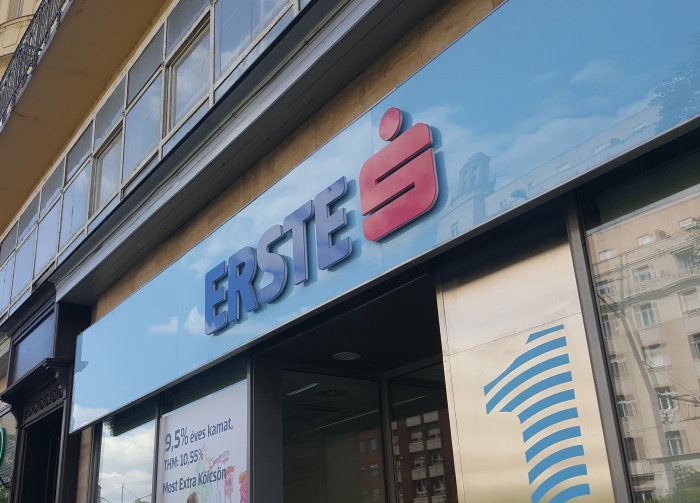Egészsége-dreher! Brewery Invests for the Future

Like much of the local market, the venerable Hungarian beer producer Dreher is battling to recover from COVID and cope with the inflationary environment.
Ask Brian Bartram, beer aficionado, ardent traveler and a retired railway manager from Bedford, England, which beverage he associates with Hungary, and the answer is immediate.
“Dreher is the one that comes to mind,” he replies, with no additional prompting. “Seem to remember I had a dark and light beer [when visiting Hungary].”
It’s a response that must be music to the ears of Gábor Békefi, chief executive of Dreher Brewery, who exudes pride when speaking about the venerable beer maker.
“We are Hungary’s market-leading brewery, with significant leadership versus others. [….] Dreher is 170 years old, the second-oldest in Hungary and the only one in Budapest,” he told foreign journalists on a visit in August.
“A commitment to quality, taking care of employees, taking care of sustainability, these are the principles that the [founding] Dreher family used, and that’s what we apply these days [to the business],” he continued.
Located in the suburb of Kőbánya, about eight kilometers east of central Budapest, many of the public are more likely to have seen the brewery complex from the air (it’s directly beneath one of the flight paths to Ferenc Liszt International Airport) than from the road that passes outside.
Changing Hands
Dreher emerged from the Socialist era to be privatized to South African Breweries in 1993 and was acquired by Asahi, one of the world’s largest breweries, in 2017. Headquartered in Japan, Asahi Europe and International operates in 90 markets on five continents with 10,000 employees.
Naturally, Dreher is a small part of that operation, with a stable workforce of some 570 people. Nonetheless, this represents more than one-third of the total headcount of 1,617 employed in 2022 by the five members of the Hungarian Breweries Association, including the four with production sites in the country: Borsod Brewery, Heineken Hungária (Sopron Brewery), the small Pécs Brewery, and Dreher.
However, when asked for details to back up his claim that Dreher was Hungary’s leading brewery, Békefi sought to skirt the subject.
“Depending on what statistics you look at, there is no one source of information on the market share in Hungary,” he said, declining to go on record with any specific percentage.
Given that Dreher sold some 2.285 million hectoliters of beer last year, when the total sales of the Hungarian Breweries’ Association members amounted to 6.463 million hectoliters, this indicates Dreher holds a 35% slice of the market, although these numbers include imported beers sold by the respective Hungarian subsidiaries. Total domestic production in Hungary last year amounted to 5.567 million hectoliters, barely changed from 2021.
(Until a few years ago, the Hungarian Breweries’ Association released market share information on an annual basis, which repeatedly revealed the three largest beer producers almost neck-and-neck, each with a 31-34% slice of the market, leaving Pécs Brewery with around 5%.)
As the subsidiary of a listed company, Dreher officials decline to speak about the brewery’s financial details, but from publicly available data, revenues rose some 17%, from HUF 63.4 billion in 2021 to HUF 74.2 bln last year, while the after-tax profit climbed from HUF 2.59 bln to HUF 3.08 bln, up almost 19%.
Cost-saving Investments
Given that these developments took place in a fast-changing inflationary environment when energy and raw material costs were rising dramatically, this is a noteworthy performance, helped by cost-saving investments.
From 2019 to last year, Dreher invested some HUF 5.6 bln in a clutch of modernization projects, topped by another HUF 7 bln outlay for the inauguration of a new line this year, which has raised the total production capacity for canned beer from 50,000 to 110,000 cans per hour.
Despite these developments, the Hungarian beer market is still struggling to recover from the impact of the COVID pandemic, a process impeded by the worst bout of inflation for 25 years over the past 12 months.
Indeed, Dreher’s 2022 sales were down 115,000 hectoliters, or almost 5%, on the 2.4 million hectoliters sold in 2019, the last year before the pandemic hit.
“We still haven’t fully recovered from the pandemic,” Békefi admitted.
Curiously, while Dreher makes relatively significant investments in marketing its premium brands domestically, the company appears to make no effort to promote its wares to the non-Hungarian-speaking market, including the tourist trade.
For example, in contrast to the policy under its previous owners, even the company website lacks an English-language version, leaving visitors like Brian Bartram to rely on Wikipedia should he wish for further information on his favorite Magyar brew when on his next visit to Hungary.
Packaging of Choice: The Can-do Trend
Quizzed about packaging trends for beer, Gábor Békefi revealed that, in Hungary at least, the aluminum can is conquering the market from the returnable bottle.
“When I look at the retail business, more than 80% of products are sold in cans, and the remaining part is split up between glass [returnable] bottles and PET [plastic] bottles,” he told the Budapest Business Journal. Indeed, the trend towards cans continues to grow, largely driven by discount retailers such as Aldi, Lidl and Penny, which refuse to sell returnable bottles.
Intriguingly, in the Czech Republic and Slovakia, while sales in cans have surged in recent years, returnable bottles still maintain important market shares. Dreher’s sister company, Plzeňský Prazdroj (Pilsen Brewery), also part of the Asahi group, reports that returnable bottles accounted for nearly 40% of sales in the Czech Republic and 33% in Slovakia.
“Different countries, different habits [...] Lidl and Aldi are responding to the consumer environment, but also they are driving consumption habits by allowing the returnability of certain containers,” Békefi said.
The deposit system for returnable bottles certainly works well across Central Europe, with exceptionally high rates of return reported.
“The rate of return across the whole market exceeds 90% on average, and [for] large breweries around 96%. In the case of Plzeňský Prazdroj, the rate of return has been as high as 98% over the long term,” a spokesperson for Pilsen Brewery told the BBJ.
Since returnable bottles have a lifetime of six-to-seven years and will be refilled on average up to 22 times, does this make glass bottles more ecologically friendly than aluminum cans? Békefi is non-commital.
“Each one has a different angle to it. A can is good because it can be recycled as many times as you want. A glass bottle does not need to be renewed in each cycle, [...] but a returnable glass bottle has added cost and complexity; you need to wash it with hot water, then rinse it, and you have to use various chemicals to clean it. So, each one has a different impact on the CO2 footprint, but glass bottles and cans are the two best forms [of packaging],” he said.
“I’ll tell you what is the worst: the non-returnable glass bottle. It’s a huge energy consumption for creating the bottle, and they typically end up in landfill because you can’t recycle them.”
This article was first published in the Budapest Business Journal print issue of September 8, 2023.
SUPPORT THE BUDAPEST BUSINESS JOURNAL
Producing journalism that is worthy of the name is a costly business. For 27 years, the publishers, editors and reporters of the Budapest Business Journal have striven to bring you business news that works, information that you can trust, that is factual, accurate and presented without fear or favor.
Newspaper organizations across the globe have struggled to find a business model that allows them to continue to excel, without compromising their ability to perform. Most recently, some have experimented with the idea of involving their most important stakeholders, their readers.
We would like to offer that same opportunity to our readers. We would like to invite you to help us deliver the quality business journalism you require. Hit our Support the BBJ button and you can choose the how much and how often you send us your contributions.










